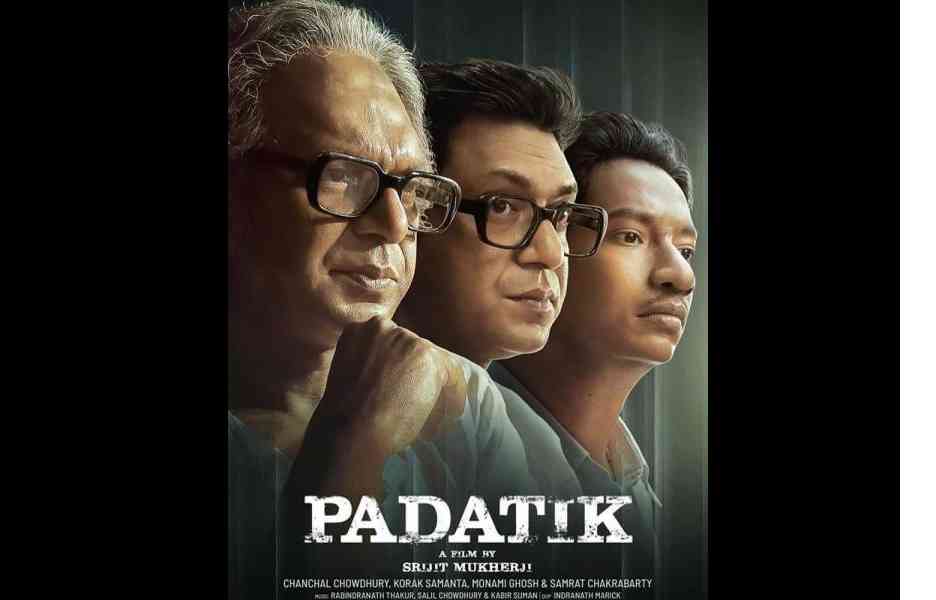Srijit Mukherji’s Padatik, the upcoming biopic on Mrinal Sen, has created a stir among movie buffs ever since its teaser was dropped in May. As the film’s release date approaches, a song from its soundtrack, Jawnotar hathe hathe has escalated anticipation and excitement about the film.
Written, composed and sung by Kabir Suman, Jawnotar hathe hathe is a song that attempts to ignite the human spirit and inspires young people to protest against injustice and inequality. It hails the common people as changemakers for a brighter future. The song plays in the background as various events from the film play out one after another. It acts as a voice of conscience telling the protagonist what he needs to do.
The visuals begin with images of political unrest in British India, uprisings among the student community and scenes of widespread, violent protests in Calcutta during the tumultuous phase of Independence. The protests symbolise a collective demand for change. A young Mrinal Sen is also seen walking among the revolutionaries, clearly impacted by the socio-economic and political turmoil that he witnesses around him. The song narrates his initiation into political thought and how his works became associated with socialist ideology. The lyrics urge the young Sen to not stop after one battle is won, but to carry on the fight until the ultimate goal of social equality is achieved.
Along with scenes depicting the Naxal revolt in Calcutta, police atrocities on young rebels, and images of a young Mrinal Sen in prison, are juxtaposed scenes of Sen’s rapturous entry into the world of filmmaking. A scene where he is visualised filming Padatik (1973) starring Dhritiman Chatterjee, symbolises his support of political activism. Yet his Calcutta trilogy — Interview, Calcutta 71 and Padatik (film clips of each are included as part of the song’s accompanying visuals) — is also seen as an expression of a view that questions the culture, ideals and values of the day and suggests a need for a complete overhaul of the socio-political system.
The young, upcoming director is also shown to be in the throes of a dilemma, politically and psychologically. Sitting pensively in the middle of the thoroughfare on Chowringhee Road with the imposing structure of the Grand Hotel in the background, he can be seen frantically searching for stable social edicts to guide him forward in life. The song also depicts how his work is misunderstood and he becomes the target of attack by a section of society. It also shows his run-in with the authorities and his revolutionary leanings.
Glimpses of his personal life where Sen is seen to enjoy domestic bliss are also visualised as the song plays out. His wife Gita is portrayed as the proverbial pillar he leans on for support and sustenance when he cannot find an enduring ideology to rely on. The song nevertheless ends on an optimistic note that the fruits of labour will be sweet.
Sung in the thunderous, powerful voice of Kabir Suman, Jawnotar hathe hathe acquires universality as an inspirational song that motivates the youth to become the symbols of the change they wish to see. It is powerful and fiery in spirit and content and can give you goosebumps as you listen to it.











